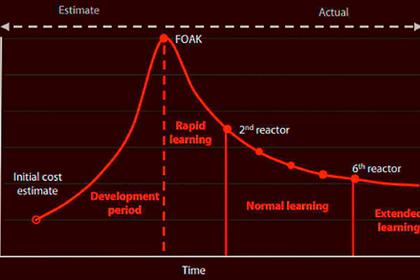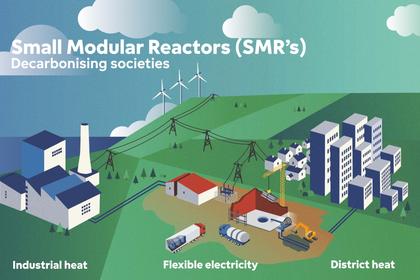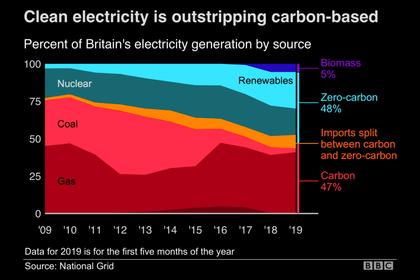
BRITAIN'S NUCLEAR: $8 BLN

WNN - 02 September 2020 - The civil nuclear industry employs over 63,000 people in the United Kingdom with some commentators predicting the need to increase this number significantly to build and operate the planned new nuclear power stations.
Civil nuclear contributes more than GBP6 billion (USD8 billion) to the UK economy and is at the forefront of helping the country achieve Net Zero, clearly demonstrating the sector's economic and environment value.
The jobs available in the supply chain are diverse and growing. If you look at the building of Hinkley Point C, opportunities include site support, professional services, earthworks, civils, engineering, commissioning and landscaping to name but a few. When you add those engaged in power station operation, decommissioning and waste management the opportunities are considerable.
Over the last few years great strides have been taken to increase the diversity within the sector. Women in Nuclear (WiN) was set up with key objectives of achieving a gender balance and increasing the skills base for women.
Since its launch in 2014, the percentage of women employed in nuclear has risen from 17% to 22%, demonstrating progress is being made, and the government’s nuclear sector deal target is for 40% of women to be employed in the industry by 2030.
In addition, attracting our future talent to the industry has been a key government and sector objective. Well publicised initiatives have been launched in recent years including the opening of new National College for Nuclear (southern hub) in Somerset, the development of the Young Generation Network and an aim of 1000 apprentices to be recruited to help build Hinkley Point C, which is exceptionally positive and welcome.
One area that tends to get overlooked is the value that older workers bring to the workplace. If we look at the statistics, by 2025 there will be 300,000 fewer people under the age of 30 in the workplace, but there will be an additional one million people aged over 50 in the workplace. With the over 50s accounting for 30% of the working population, from an economic and experience perspective their talents cannot be ignored.
Unfortunately, older workers are often perceived to be less productive, resistant to change, not forward looking and are routinely overlooked for training and career development. This perception may not be deliberate but because of unconscious bias, which amongst other aspects of ageism need to be addressed.
What people forget is the knowledge these older individuals have accumulated during their career. Like many others throughout my career, I have learnt a great deal from older colleagues often becoming mentors. Whilst priorities may change the older you become, including caring for relatives that requires increased flexibility, older workers generally want a role that is stimulating, sociable, meaningful and rewarding. If these cultural values are embedded in a business, then loyalty and longevity are often the beneficial results.
When looking at the civil nuclear sector, many have enjoyed long and enjoyable careers either directly working at power plants or the wider supply chain. Due to continuous advances in technology, regulatory changes and improved working practices, their skills base has continued to be enhanced, which needs to be cherished, utilised and shared with the country’s future talent.
As an example, the introduction of industry placements as part of the new Technical Level (T Level) qualifications will require students to attend a 50-day work placement as part of the curriculum. I know companies in the sector are gearing up for this opportunity, utilising the skills of older workers to help attract new talent.
There is increasing belief that businesses and organisations which are diverse and inclusive in their makeup are likely to be successful, with various reports and articles supporting this view. Businesses that actively recruit, develop, promote and encourage diversity in terms of gender, ethnicity, age and skills at all levels in their organisation are more likely to generate a more cohesive, attractive, balanced and dynamic business to work in, not only for short-term profitability but for longer term growth.
Despite the economic challenges that Covid-19 has had on the country with rising unemployment, where and how we work, I would argue that the civil nuclear sector is ideally placed to weather the storm and has the potential to grow significantly in the coming years. So, I would conclude the opportunities for all those working in and entering the civil nuclear sector, whether young or older, are there to be taken.
-----
Earlier:












